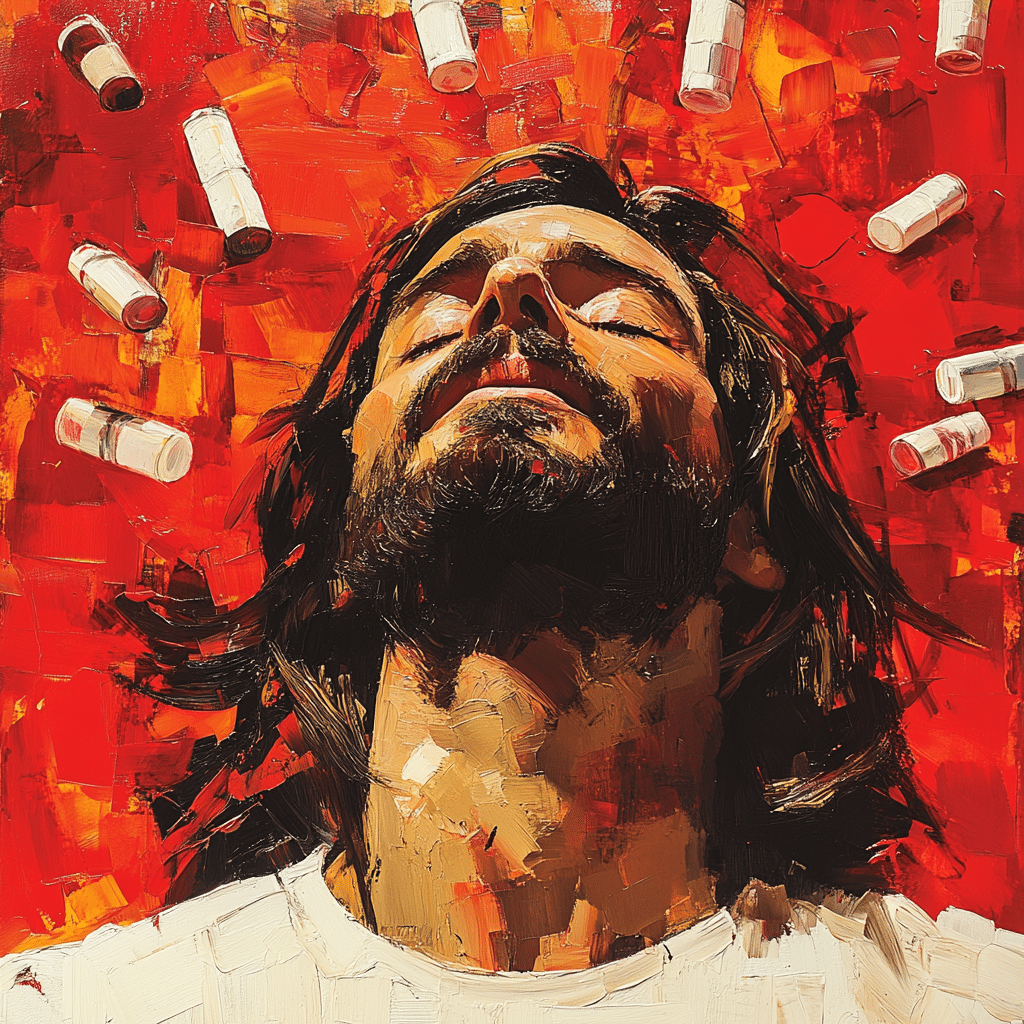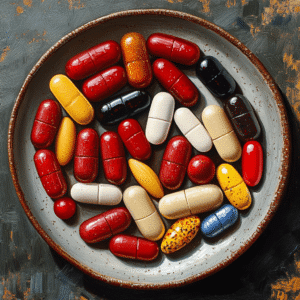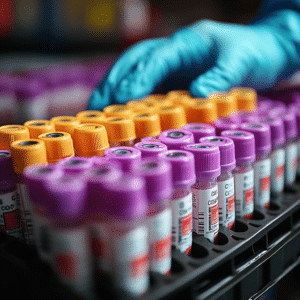As many parents know, the journey through addiction can often feel like a vast, turbulent ocean, full of waves of despair and uncertainty. In this challenging landscape, the intersection of addiction and religion offers a flicker of hope. For countless individuals grappling with substance use disorders, faith can become a transformative resource. It serves as a beacon, providing not just comfort but also a sense of belonging that helps frame addiction not merely as a personal failure but as a challenge to be met with spiritual support and community strength. This article will delve deep into how the principles of faith can boost recovery and provide solace to parents dealing with the heart-wrenching struggles of their children.
Understanding the Intersection of Addiction and Religion
When we look at the connection between addiction and religion, it’s essential to recognize that spirituality can play a critical role in recovery. Many studies indicate that religious beliefs and practices can lead to lower levels of substance abuse, as seen in findings from Degenhardt et al. (2010) and others. This connection stems from the way faith creates an emotional landscape that promotes resilience and gives individuals deeper meanings beyond their addiction. Moreover, recognizing addiction as a potential sin can ignite the desire to seek redemption and healing through a relationship with a higher power.
Parents often grapple with helplessness when faced with their child’s addiction. In these moments, understanding that addiction is not solely a personal battle but a journey interwoven with spiritual and communal threads can provide clarity. Moreover, religious teachings can reinforce the idea that they are not alone in this struggle. Many faith traditions emphasize community, love, and acceptance, forming a sanctum where individuals can heal, reframe their narratives, and find purpose.
A prime example emerges from the teachings of 1 Corinthians 10:13, which assures us that, “No temptation has overtaken you except what is common to mankind. And God is faithful; he will not let you be tempted beyond what you can bear.” This powerful message emphasizes the belief that faith can provide strength when it feels like overcoming addiction is insurmountable.

Top 7 Religious Principles That Enhance Recovery from Addiction
To understand how addiction and religion intertwine, let’s explore seven vital religious principles that can significantly aid recovery:
Belief in a higher power serves as the bedrock of many recovery programs, including Alcoholics Anonymous. Participants often find comfort in surrendering their struggles, cultivating humility, and fostering accountability.
Religious institutions commonly offer community support through fellowship. Programs like Celebrate Recovery emphasize collective healing, allowing individuals to share struggles without the weight of judgment. Such environments nurture friendships that foster encouragement and healing.
Forgiveness—both towards oneself and others—is essential in religious teachings. For instance, Buddhism promotes metta (loving-kindness), enabling individuals to release guilt and shame tied to past transgressions.
Practices like prayer and meditation exist in various religions as tools for introspection and connection. Mindfulness meditation, part of both Hindu and Buddhist traditions, has been shown to reduce cravings and enhance emotional regulation, supporting recovery effectively.
Religious teachings provide a moral framework, guiding individuals in recognizing their actions. The Ten Commandments in Christianity, for instance, encourage adherence to integrity, motivating those in recovery to make healthier choices.
Establishing daily routines through religious rituals can instill a sense of stability. Observing holy days or performance of prayer fosters structure, helping individuals concentrate and discipline themselves, which is crucial to avoiding relapse.
Influential figures in various faith traditions offer narratives of overcoming adversity. Take St. Augustine, who fought alcohol addiction; his transformation is a reminder of the powerful connection between faith and recovery, encouraging individuals to seek redemption through spirituality.
The Role of Faith-Based Rehabilitation Programs
Faith-based rehabilitation centers, such as the T.R.U.E. program (Treatment, Recovery, Understanding & Empowerment), provide an integrated approach to addiction recovery. These programs address the physical aspects of addiction while emphasizing the importance of the spiritual journey involved in healing. By weaving together counseling, medical care, and spiritual mentorship, these facilities have shown considerable promise in helping individuals strive not only for sobriety but also for a life mirrored by their core beliefs.
Research suggests that participants in faith-based programs often experience higher success rates in long-term recovery due to the community support and spiritual framework these programs provide. They create settings that align with the tenets of community support, crucial in nurturing resilience and fostering healing.

Personal Testimonies: The Impact of Spirituality on Recovery
Countless personal stories illustrate the impact of spirituality on recovery. For instance, renowned figures like Oprah Winfrey have shared how their deep spiritual connections provided them with the resilience necessary to confront their struggles with addiction. The testimony of individuals from all walks of life underscores the powerful influence of community support and a belief in a higher purpose.
These narratives serve not just as inspiration but also highlight the necessity of family engagement in the healing process. Parents need to be aware that their children’s stories can be re-written through faith and acceptance, igniting hope and renewal.
Embracing a Holistic Approach
Integrating addiction treatment with spiritual guidance presents a holistic route to recovery. Recognizing addiction as a disease intertwined with emotional and spiritual aspects can transform the healing narrative. Individuals who embrace this comprehensive approach—attending to mind, body, and spirit—are likely to experience more profound, lasting changes.
The road to recovery can be daunting, but it doesn’t have to be traveled alone. Faith-based practices can create a supportive environment, guiding individuals towards a brighter, more fulfilling future.
Looking Ahead: The Future of Addiction Recovery Through Faith
As society continues to grow in its understanding of addiction, the potential role of religion in recovery may become even more significant. Research increasingly suggests that faith-based recovery methods could offer valuable tools for those struggling. By embracing the interrelationship between addiction and religion, we strengthen the foundation for helping individuals reclaim their lives.
Exploring the dynamic interplay of spirituality and addiction treatment signifies renewed hope and motivation. With faith as a cornerstone in their recovery, individuals can harness spiritual beliefs to cultivate resilience and inspire growth, creating pathways to recovery that not only heal individuals but also strengthen our families and communities, celebrating the power of love and support.
In tough times, no matter how alone you might feel, remember that faith, community, and a commitment to healing can illuminate paths toward recovery, making life’s burdens just a little lighter for everyone involved.
If you’re looking for support as a parent of a child struggling with addiction, we at Mothers Against Addiction are here to help you navigate this challenging journey with open arms and compassionate hearts.
Addiction and Religion: Finding Strength in Faith
Embracing a Higher Power
Addiction and religion often intersect in profound ways, showing how faith can guide individuals through their recovery journey. It’s intriguing to note that many people find solace and strength in spiritual practices while overcoming addiction. For instance, some support systems emphasize The role Of community support, helping individuals connect with others who understand their struggles. Just like the creativity behind the Godzilla figure, which has captivated audiences for decades, the idea of building connections through shared experiences can be quite powerful.
Moreover, research suggests that incorporating spirituality into recovery can significantly boost success rates. Interestingly, some studies indicate that people who engage in spiritual practices may experience better mental health. This echoes the sentiment behind the creation of the Tabletine where individuals are guided to seek balance in their lives. In the context of addiction and religion, it reflects the underlying principle of looking for something greater than oneself for support.
The Healing Power of Faith
Digging deeper into the relationship of addiction and religion, one might be surprised how many movies and TV shows address these themes. Yes, addiction in Movies And TV often sheds light on real struggles, yet it doesn’t always capture the hope found in faith-based recovery programs. A movie may dramatize the chaos addiction brings but rarely does it portray the peaceful revelations that faith can provide. However, many Books about addiction reveal some amazing testimonies showing how turning to a higher power makes a significant difference. Just like how an average interest rate can impact your financial decisions, the spiritual approach impacts recovery paths uniquely for each individual.
In noticing these fascinating dynamics, recognizing the significance of faith becomes even clearer. It serves as a guiding light for countless individuals striving for recovery. Taking a step back, you realize that addiction isn’t just a story about loss—it’s about finding hope again, much like discovering the surprising history behind something ordinary like the folding chair. The journey can inspire recovery stories that motivate individuals to lean into their faith, transforming pain into purpose.

How does religion affect addiction?
Religion often helps people by providing a strong sense of community, support, and guidance, which can lower the chances of substance abuse. Many studies show that individuals with spiritual beliefs tend to use drugs less and have better overall mental health throughout their lives.
What does God say about addiction?
God teaches that addiction can pull people away from Him and lead to negative behaviors. It’s seen as a sin that can create feelings of shame and despair, but there’s hope as God offers a way back to redemption.
How does God view addictions?
Addictions are often viewed as a separation from God’s plan for us, with the belief that they lead to destructive paths and emotional turmoil. God wants to help individuals find healing and restore their relationship with Him.
Why is faith important in addiction recovery?
Faith plays a crucial role in recovery because it can provide a renewed sense of purpose and direction in life. When people connect with their spirituality, it often fills the void that led to substance abuse in the first place.
What is God’s grace for addicts?
God’s grace is a powerful gift for addicts, showing that no one is beyond hope or healing. This grace is about forgiveness and support, encouraging people to find strength in their faith to overcome their struggles.
What does the Bible say about drugs?
While the Bible doesn’t directly talk about drugs, it emphasizes the importance of self-control and being mindful of how substances can affect our lives. It calls for a cautious approach toward anything that might lead us away from a healthy relationship with God.
Does God forgive addicts?
Yes, God forgives all who genuinely seek His forgiveness, including addicts. It’s all about turning back to Him with a sincere heart, knowing that He understands our struggles and desires to restore us.
What is the root of our addiction?
The root of addiction is often linked to deeper emotional or spiritual issues, such as pain, emptiness, or a disconnection from God. It’s a complex mix of experiences that drives individuals to seek relief through substances.
Who in the Bible struggled with addiction?
Biblical figures like Noah and King David faced challenges with alcohol, showing that struggles with addiction can affect anyone, regardless of their relationship with God or status. Their stories provide hope and illustrate the possibility of redemption.
Will God forgive me for repeating the same sin?
Even if you find yourself repeating the same mistakes, God’s forgiveness is always available. He understands human weakness and is always ready to welcome you back when you turn to Him sincerely.
Does Jesus love addicts?
Yes, Jesus loves all people, including those struggling with addiction. His love is unconditional, offering comfort and healing to anyone who seeks it, regardless of their past.
What would Jesus say to an alcoholic?
Jesus would likely encourage an alcoholic to seek help, find a new way of life, and embrace a relationship with God. He understands the struggle and wants to walk alongside those in need of support and redemption.
What does Jesus say about addiction?
Addiction is often seen as a struggle against sin, and Jesus teaches about the importance of self-control and living a fulfilling life. His teachings encourage individuals to seek freedom from destructive behaviors through faith.
Why do addicts turn to religion?
Addicts may turn to religion in their search for comfort, hope, and connection. Faith can provide a sense of community, purpose, and peace during challenging times, often acting as a lifeline in their recovery journey.
What are addict core beliefs?
Core beliefs of addicts might include feelings of unworthiness, shame, or hopelessness, which can trap them in a cycle of addiction. Understanding these beliefs is crucial for effective healing and recovery.
How does religion influence alcoholism?
Religion significantly influences alcoholism by offering support systems, guiding principles, and a sense of accountability, which can lead to reduced alcohol consumption and a healthier lifestyle.
Why is religion important in fighting drug abuse?
While religion can be a source of strength, an unhealthy obsession with it may lead to guilt, fear, or control, pushing people away rather than drawing them closer to God. Recognizing balance is crucial for spiritual well-being.
What is an unhealthy obsession with religion?
The church often sees addiction as a serious issue that requires compassion, understanding, and support. Many congregations are increasingly working to help those struggling and seek to provide healing through community and faith.




























